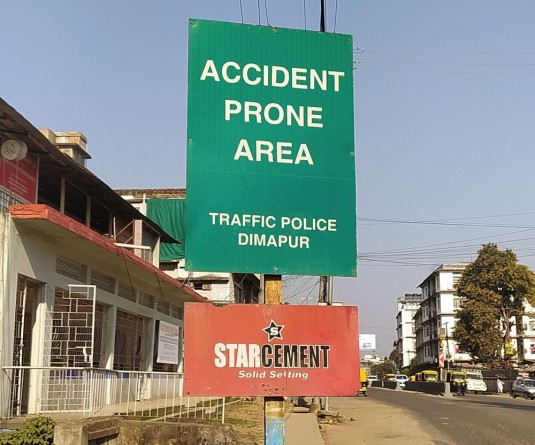
Samhita Barooah
Researcher and Travel Writer
Prohibition is such a mirage that seems real but actually it is like a prism which refracts light into another direction. Prohibition is always coercive and restrictive. It has done more harm than help in the Indian context. There is always a human endeavour to test the limits of strictures and survival instincts can compel any human to unleash the bindings of prohibition.
Negative connotation of the world has always attracted positive reactions. Somehow inverse correlation gets established through a reflexive association. Socio-cultural sanctions in every society are the gatekeepers of prohibition. In India, law and social media seems to be some of the vibrant and potent channels of prohibition these days. But prohibition without regulation and innovation is detrimental to both human and natural contexts.
In Nagaland, there is prohibition of liquor sale and use in public and private spaces. Ironically, most of the causes of liver failure and stomach cancer are alchohol abuse. Prohibition is directly linked to abuse also. Since people do not find alchohol easily there is a tendency to abuse its intake. Prohibition of liquor in Naga Hills is welcome move from the state and church bodies but its impact on people seems to be extreme. Accessibility and affordability of alchohol becomes very difficult in the open so there is a huge market roaring and surviving on those who can afford and those who are trapped in the debts due to alchohol. People mortgage their shoes, coats, mobile phones and any such expensive items to buy alchohol at exorbitant interest rates not less than 10 percent. Alchohol use has led people to abuse their own family members, kith and kin. Sometimes fights get so extreme that people cannot afford to pay the fine also. ‘Abuser pays’ principle also applies in some villages which can be considered to be a deterrent but most of the times, it backfires and the pressure of payment falls on the abuser’s families and supporters. For some people alchohol is part of the status symbol, so if a rural youth has not tasted alchohol, it is below the standards of social constructs and his masculinity. Prohibition without monitoring is making the rich richer and the vulnerable groups are getting embezzled in the traps of prohibition. Most addicts whose life depends on minimum use of alchohol are leading inhuman lives, socially excluded and financially doomed. Neither do they have enough resources for de-addiction, counselling support for constant follow nor are they getting any treatment after multiple relapses which affect them both mentally and physically. All that pseudo prohibition has done is to create a label and stigmatise persons who are under the influence of alcohol.
Hence the paradox of religion, class, ethnicity, gender and race is literally wiping out generations of potentialities from Nagaland through easy access to illegal trade, fine system, aggression in dealing with addiction issues and lack of communication with youths. Everything is practiced, yet under the veil of prohibition. Prohibition is such an invisible order which has shielded only the powerful and disrobed the powerless. Such a paradox has led to gender based violence, women are much more marginalised within their home spaces and excluded further from the social, cultural and political decision-making. Women face even more pressure from the customary construct of a closed community when they get into addiction. Some women face persecution and public shaming when they drink and lose their senses. Some commit suicide to avoid any form of character assassination and social alienation and others gets labelled as mentally challenged even when they are minor drinkers. Prohibition has never done any positive change rather a holistic and multipronged approach with adequate social responsibility is the need of the hour. Legislations and strictures need amendments and repositioning when society is in constant transition. Without a proactive and pragmatic approach to address age-old critical social problems, only prohibition in the name of a larger cultural ideal is going to silence the voices of the unheard masses. Cultural complexities coupled with religious diktats strengthen prohibition norms and also make oppressors out of the commoners whose morality tangents are defined by prohibition orders. Such oppressors take pride in cleansing society from the ills of alchohol and conflicts which follows from its abuse through their most inhuman acts of coercion. The whirlpool of poverty, disillusion, despair and disruption affects an individual, a family, a neighbourhood, a community and a state in a multi-dimensional process due to prohibition paradox. It is time that the consciousness of the community is raised to address the critical implications of such strategies which are making a few rich and powerful while millions are left crippled and indebted.



